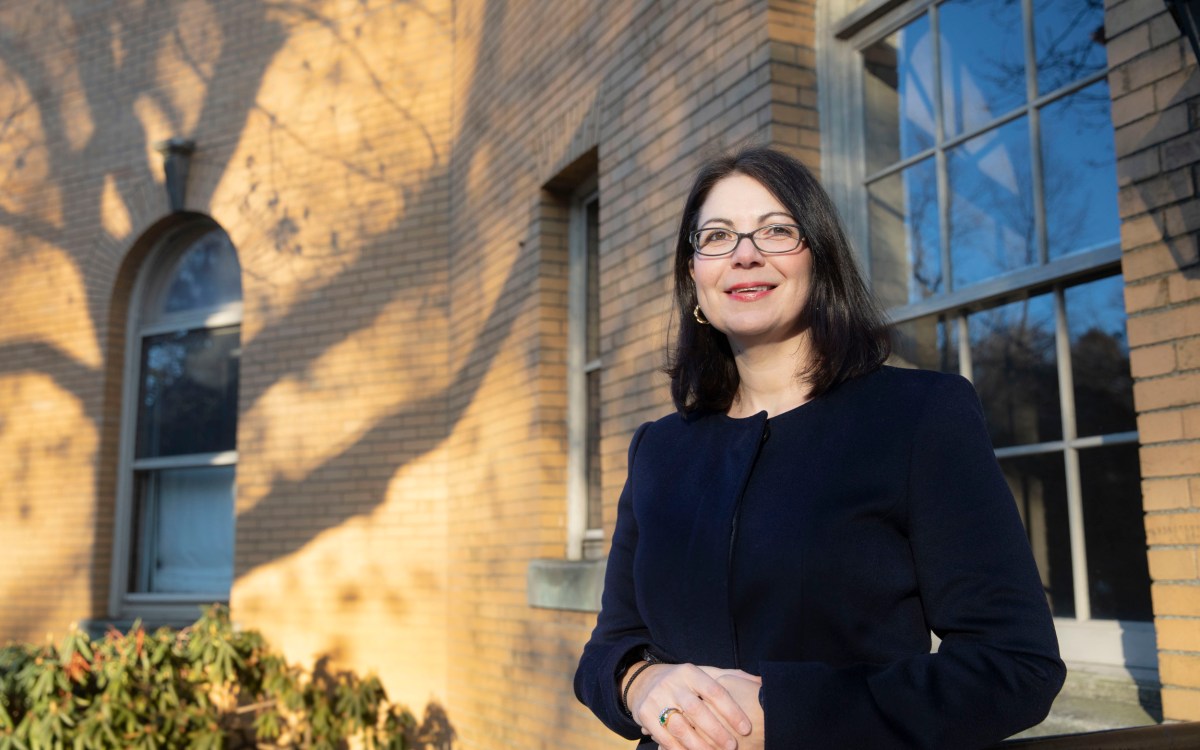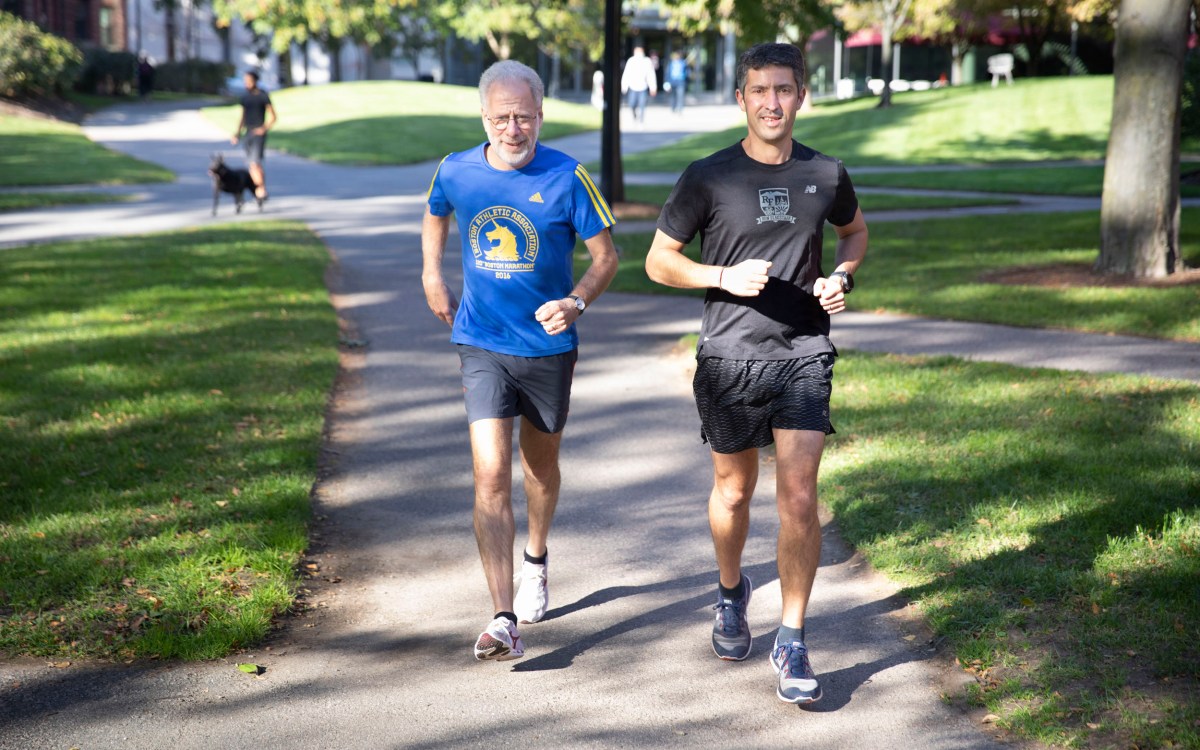Is 80 the new 60?
New demographic shift driven by increases in life expectancy, ‘health span’
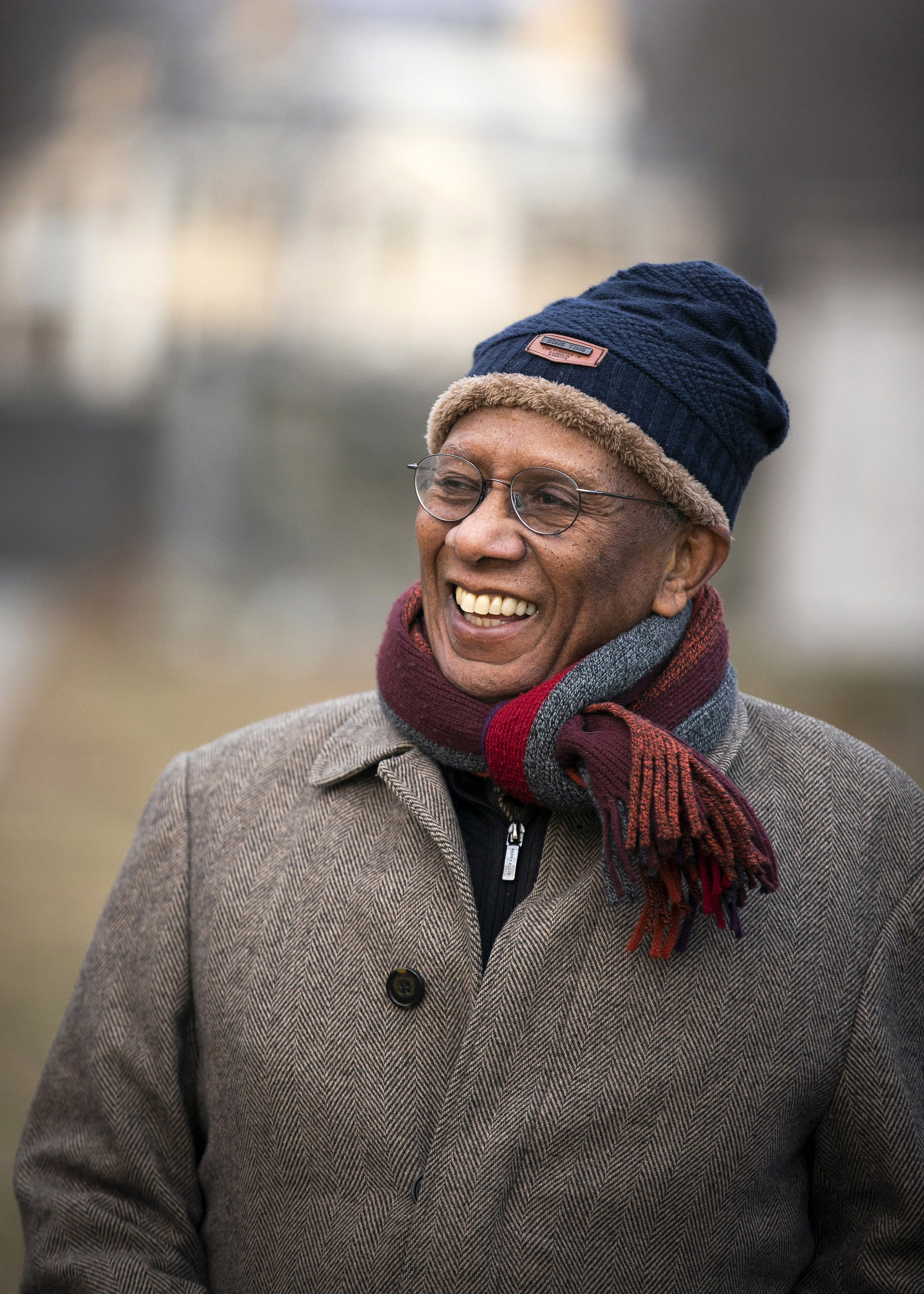
“In my view, the more you work and the more goals you set to achieve, the better it is for your health,” says Orlando Patterson, 81, John Cowles Professor of Sociology.
Stephanie Mitchell/Harvard Staff Photographer
At 81, Orlando Patterson, John Cowles Professor of Sociology, is as busy as ever.
The Jamaica-born scholar of slavery and issues of race delivered a 340-page report on education reform in the island nation to Prime Minister Andrew Holness a month ago, as he geared up to teach two spring courses: a workshop on culture, history, and society, and a class on human trafficking and slavery. And he did all of that while advising numerous graduate students, taking care of several administrative duties in his department, and parenting his 17-year-old daughter Kaia with his wife of 26 years, Anita Goldman.
Patterson doesn’t plan on backing off his schedule any time soon, and he’s not alone among growing numbers of his cohort. He is part of a major demographic transformation driven by the twin increases of life expectancy and “health span,” the length of time a person is healthy.
“Not only has life span increased on average, but also health span has increased,” said Olivia I. Okereke, M.D., associate professor of psychiatry at Harvard Medical School and associate professor of epidemiology at the Harvard T.H. Chan School of Public Health. “As a result, more older people than ever seem to lead healthy lives, engaged in a full range of activities — including in business, science, politics, and cultural and civic life.”
“Many societies were built on the wisdom of elders. In some ways, it isn’t surprising that people like Nancy Pelosi, Joe Biden, and Tony Fauci are around.”
— Lisa F. Berkman, director of the Harvard Center for Population and Development Studies
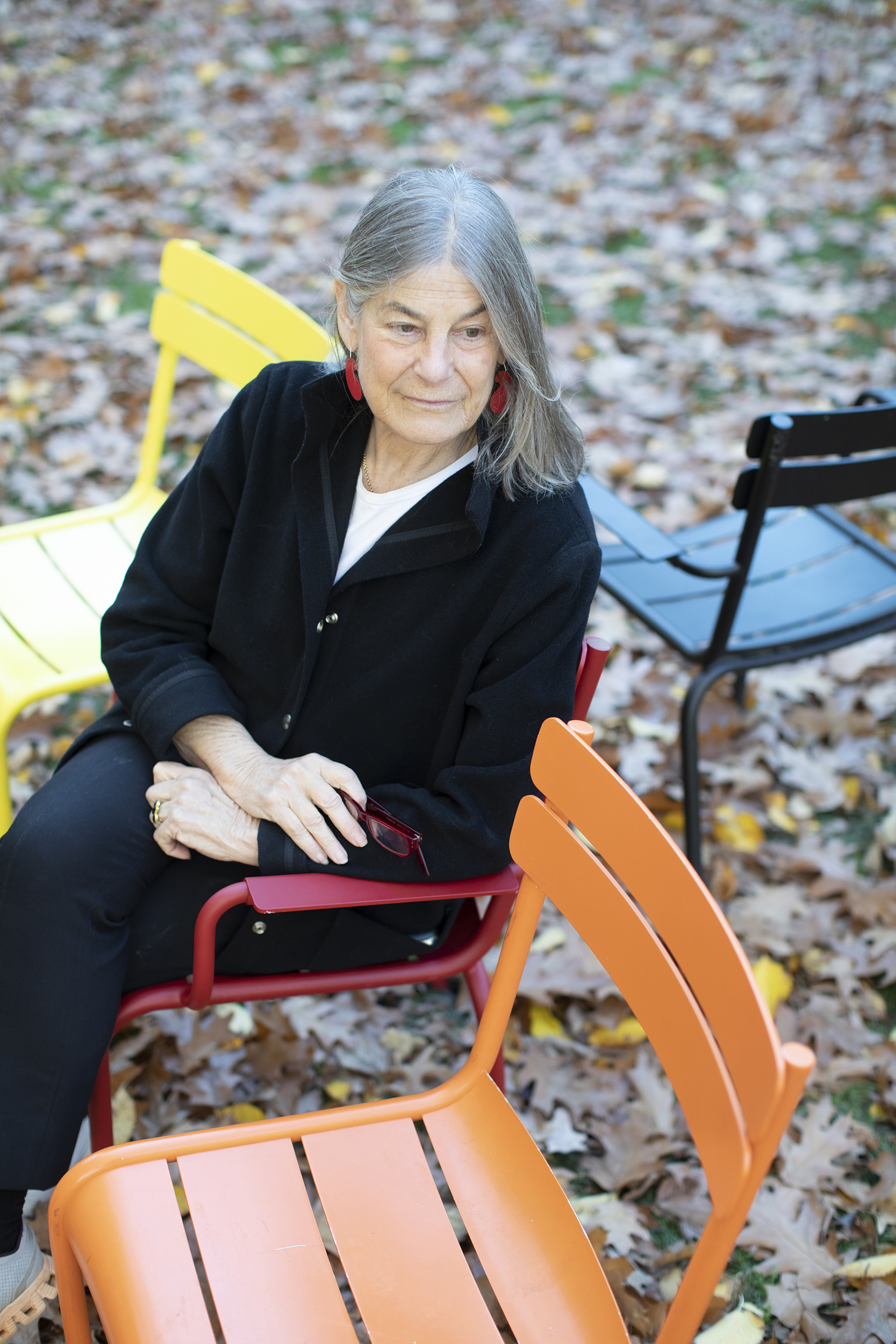
Rose Lincoln/Harvard Staff Photographer
Patterson believes remaining healthy and active is something of a chicken-or-egg proposition. “In my view, the more you work and the more goals you set to achieve, the better it is for your health,” said Patterson. “Interacting with people, dealing with people’s expectations of you and your reaction to those expectations, the working, and the thinking, are part of staying alive in a way that makes life meaningful for me. I wouldn’t want to give that up.”
According to the U.S. Census, the country’s population aged 65 years and older has grown rapidly since 2010 due to the aging of Baby Boomers, born between 1946 and 1964. With older people living longer and healthier lives, their share of the population has doubled in the past 50 years.
It is a phenomenon that not only experts in the medical field have noticed. In the past two years, two octogenarians helped lead the country amid the COVID pandemic and the political crisis surrounding the Jan. 6 insurrection: Nancy Pelosi, speaker of the House of Representatives, and Anthony Fauci, immunologist and director of the National institute of Allergy and Infectious Diseases. Both were born in 1940. Other top leaders are not far behind: President Joe Biden will be 79 in November, and Mitch McConnell, the Republican Senate minority leader, turns 80 this month. The internet is, in fact, replete with lists of influential over-80s: from activist Jane Fonda (84) to director Clint Eastwood (91) to singer Joan Baez (81) to actress Rita Moreno (90).
It wasn’t very long ago that octogenarians were considered well past their prime. Medical improvements, such as maternal and child health care, sanitation, and public health measures, along with vaccines and antibiotics, have made living a long and healthy life less of an exception today, said Lewis Lipsitz, M.D., chief of the Division of Gerontology at the Beth Israel Deaconess Medical Center and professor of medicine at Harvard Medical School.
Demographic challenges
Around the turn of the 20th century, life expectancy was about 50 years, and people who lived longer than that often did so with chronic physical and mental ailments. Now average life span is into the 80s, said Lipsitz, and many more octogenarians remain cognitively and physically vigorous, experiencing most if not all of their old age without disease or disability.
“Seeing people living long and successful lives used to be the exception, and it’s becoming the rule today. It’s what we call the ‘squaring of the survival curve,’” said Lipsitz, director of the Marcus Institute for Aging Research at Hebrew SeniorLife, a senior care organization affiliated with Harvard Medical School.
“What we would like to do in the field of aging is to have everyone live to their full life span in good health rather than experiencing a long period of decline, and we’re beginning to see that happen.”
“Not only has life span increased on average, but also health span has increased.”
— Olivia I. Okereke, associate professor of psychiatry at Harvard Medical School and associate professor of epidemiology at the Harvard T.H. Chan School of Public Health
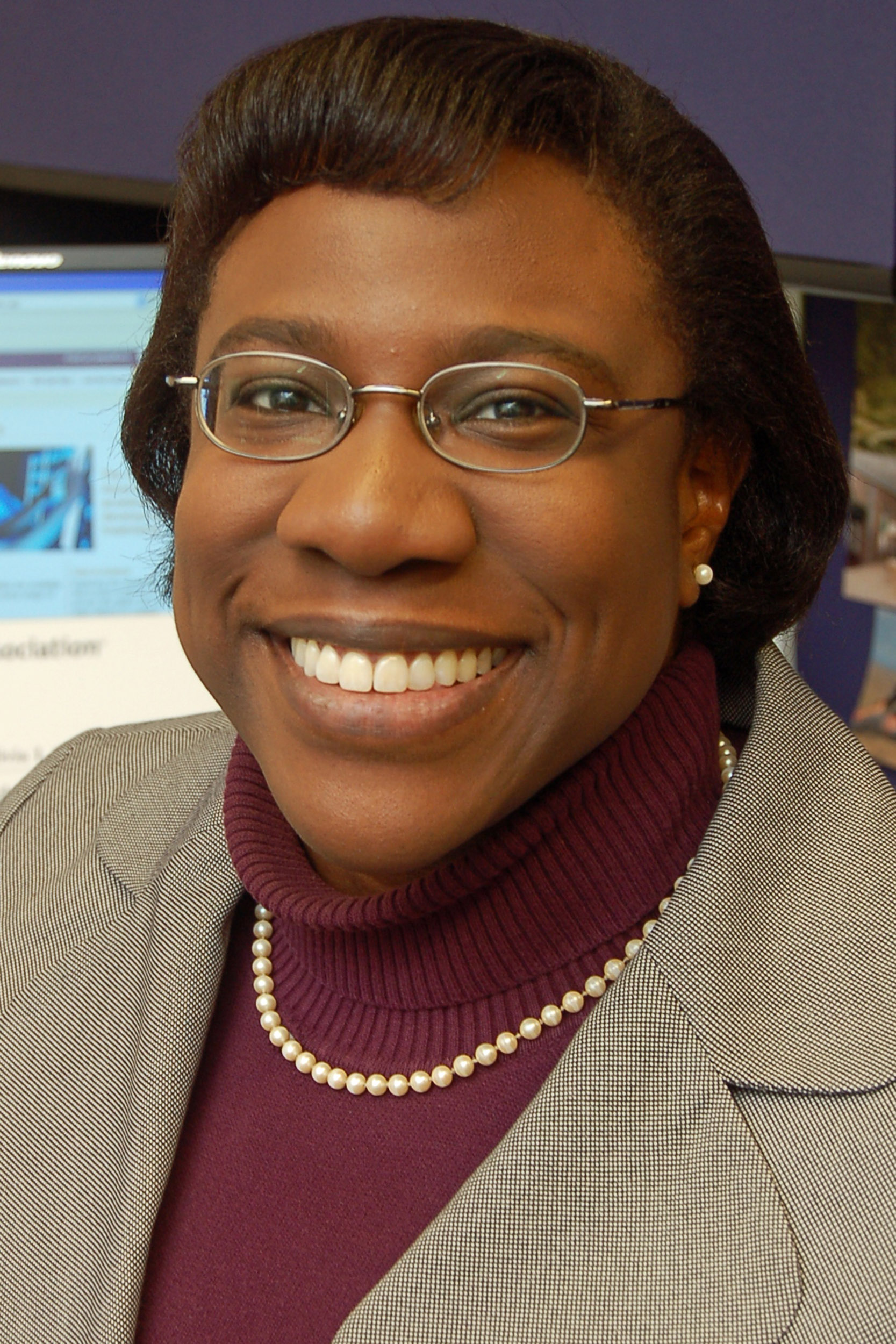
Contributed photo
With the increase in longevity, another demographic shift has taken place, said Lisa F. Berkman, director of the Harvard Center for Population and Development Studies. While people are living longer, fertility rates are going down, and both trends are reshaping the demographic pyramid, which looks less and less like a pyramid.
“What we have is a rectangularization of the pyramid,” said Berkman, who is also the Thomas D. Cabot Professor of Public Policy, Epidemiology, and Global Health and Population at Harvard T.H. Chan School of Public Health. “It’s no longer a pyramid with lots of young people at the bottom because fertility rates have declined and stayed there, or very few people at the top because longevity has increased.”
For Berkman, the demographic transformation poses a challenge to societies, which must reimagine themselves to adapt to an aging population. Keeping older people in the workforce would not displace younger workers, she said, and many companies would benefit from the “soft skills,” such as interpersonal and negotiating skills, older workers tend to have.
“Many societies were built on the wisdom of elders,” said Berkman. “In some ways, it isn’t surprising that people like Nancy Pelosi, Joe Biden, and Tony Fauci are around. What’s surprising is that they never would have been alive 50 years ago because 50 years ago, the odds of survival to 80 were so much smaller.”
The road to healthy aging
Researchers define “healthy aging” according to four areas: longevity, physical health, emotional health, and cognitive health. A person who lives into older years with good status in all four domains can be said to have “healthy aging,” said Okereke.
But social disparities play a role in healthy aging. Those who live longer and healthier lives tend to have higher income and education levels and other socio-economic advantages. Much of the disparity, said Okereke, has to do with the factors that drive early mortality. At birth, the life expectancy of a Black man in the U.S. is estimated to be at least a decade shorter than that of a non-Latinx white woman, she said.
Genetics can contribute to longevity, said Okereke, but more important in survival and healthy aging are “the choices we make as adults”: regular exercise, healthy diet, and not smoking. Social determinants of health can also tip the scales, she said.
“For example, early life factors, such as household wealth versus poverty, food and financial security versus instability, health-promoting versus traumatic environments, educational attainment and quality, and so on — these factors affect how a person can be set up to lead a longer, more healthful life versus not,” said Okereke.
“We have to make sure we have a sense of purpose, which makes us feel we’re contributing something, and also that we keep social connections.”
— Lewis Lipsitz, chief of the Division of Gerontology at the Beth Israel Deaconess Medical Center and professor of medicine at Harvard Medical School
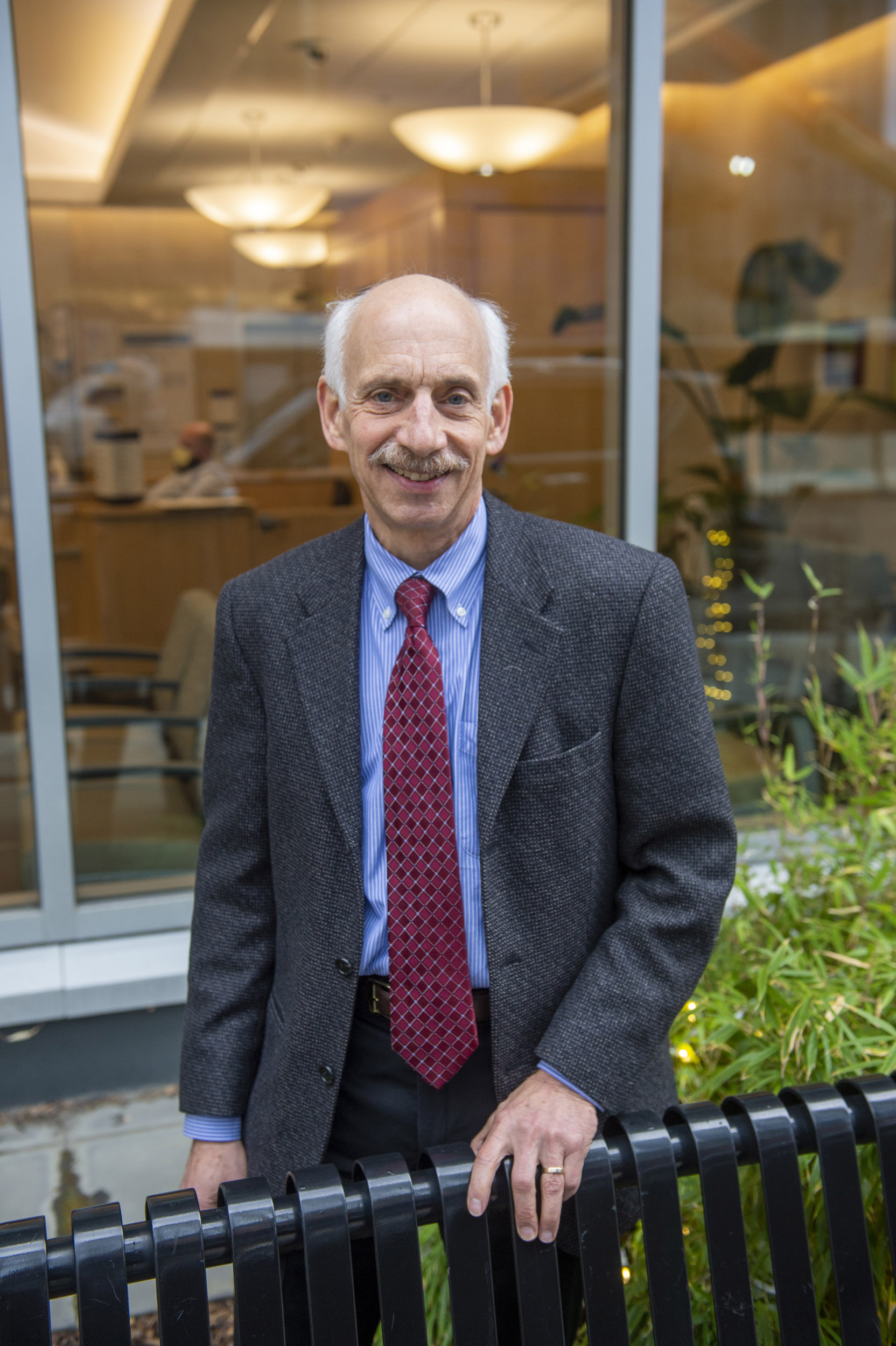
Jon Chase/Harvard Staff Photographer
In Patterson’s case, long life expectancy runs in the family. Both his paternal grandparents led active lives until they died, one at 96 and the other at 102. But he tries to stay healthy by watching what he eats and snacks on — only nuts. He walks a mile every day and bikes to work whenever the weather allows. He sleeps only five hours, and says he doesn’t need more than that.
“The older I have gotten, the less sleep I need,” he said. “The older I get, the more I work because my sense is that time is shorter, and I want to make the most of it.”
Experts stress regular physical exercise as the magic bullet to achieve healthy aging, along with a healthy diet, such as the Mediterranean diet, which centers on fruits, vegetables, olive oil, and monosaturated fats, and moderate amounts of red wine. Education also offer some protection from cognitive decline in late life, said Lipsitz, but other major contributors are maintaining strong social ties and being engaged in a meaningful activity.
“Not only do we have to overcome early childhood disease and death,” said Lipsitz. “But throughout the rest of our lives, we have to make sure we have a sense of purpose, which makes us feel we’re contributing something, and also that we keep social connections, which are critical to living a long and healthy life.”
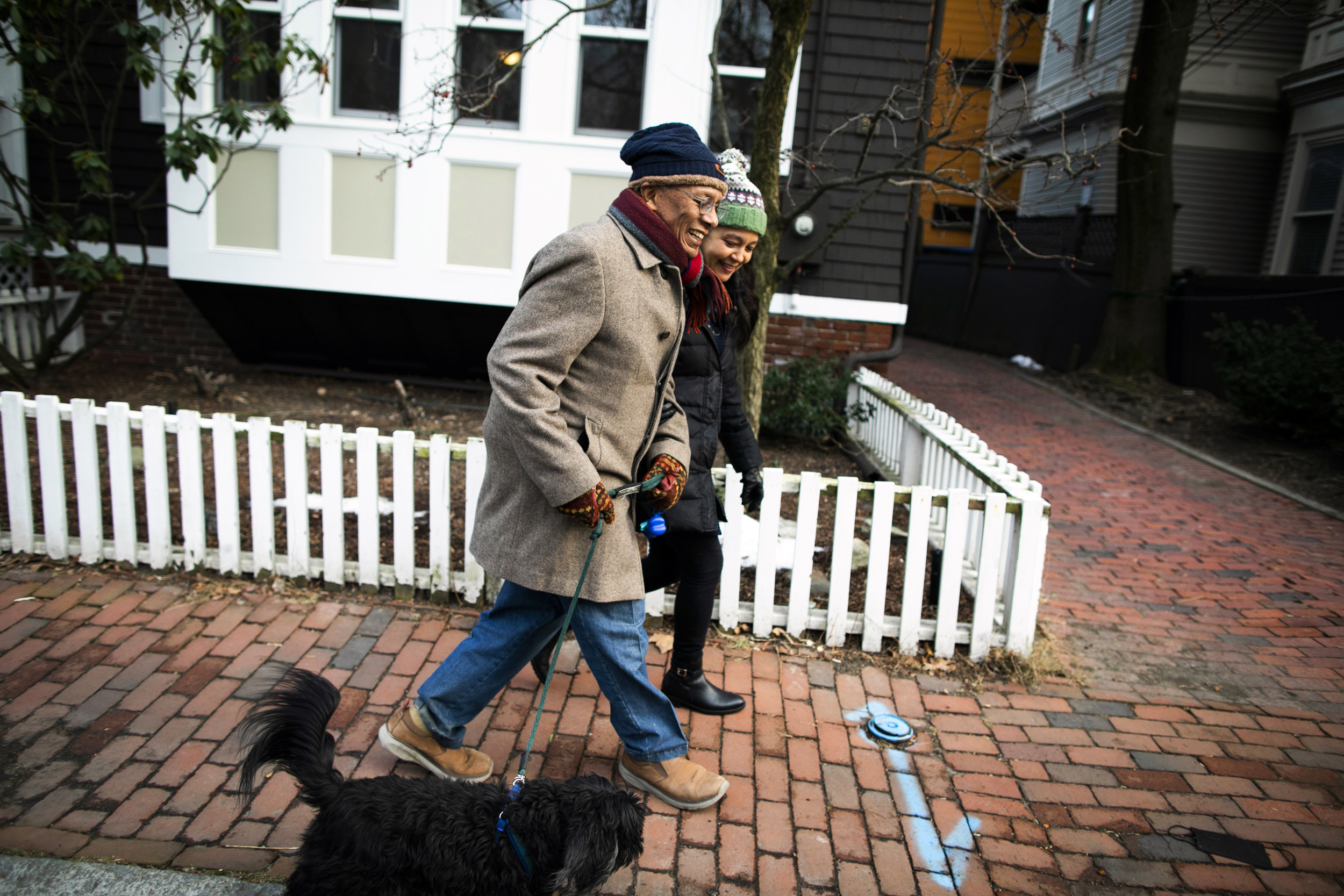
Patterson and his wife, Anita Goldman, walk their dog.
Stephanie Mitchell/Harvard Staff Photographer
Asked about the secrets to his health span and longevity, Patterson said that there are many: the vitality he receives from the company of young people, his passion for work, and having lived in three different countries: Jamaica, where he grew up as the son of a police detective and a seamstress; England, where he did his undergraduate and doctoral studies; and the U.S., where he has lived for the past 50 years.
“I have had three different lives, in a manner of speaking,” he said. “It’s like having been reborn three times, and it has been extremely rejuvenating.”
But to Patterson, a scholar who has written six major academic works and three novels, being a super-ager involves keeping busy, being productive, enjoying work and life, and getting involved in many projects as possible.
“It’s important to stay healthy,” he said, “and so is being engaged and passionate about a project. I can’t think of a period in which I was not obsessed with a novel, a paper, or a book. I have always made sure I had something to look forward to.”



